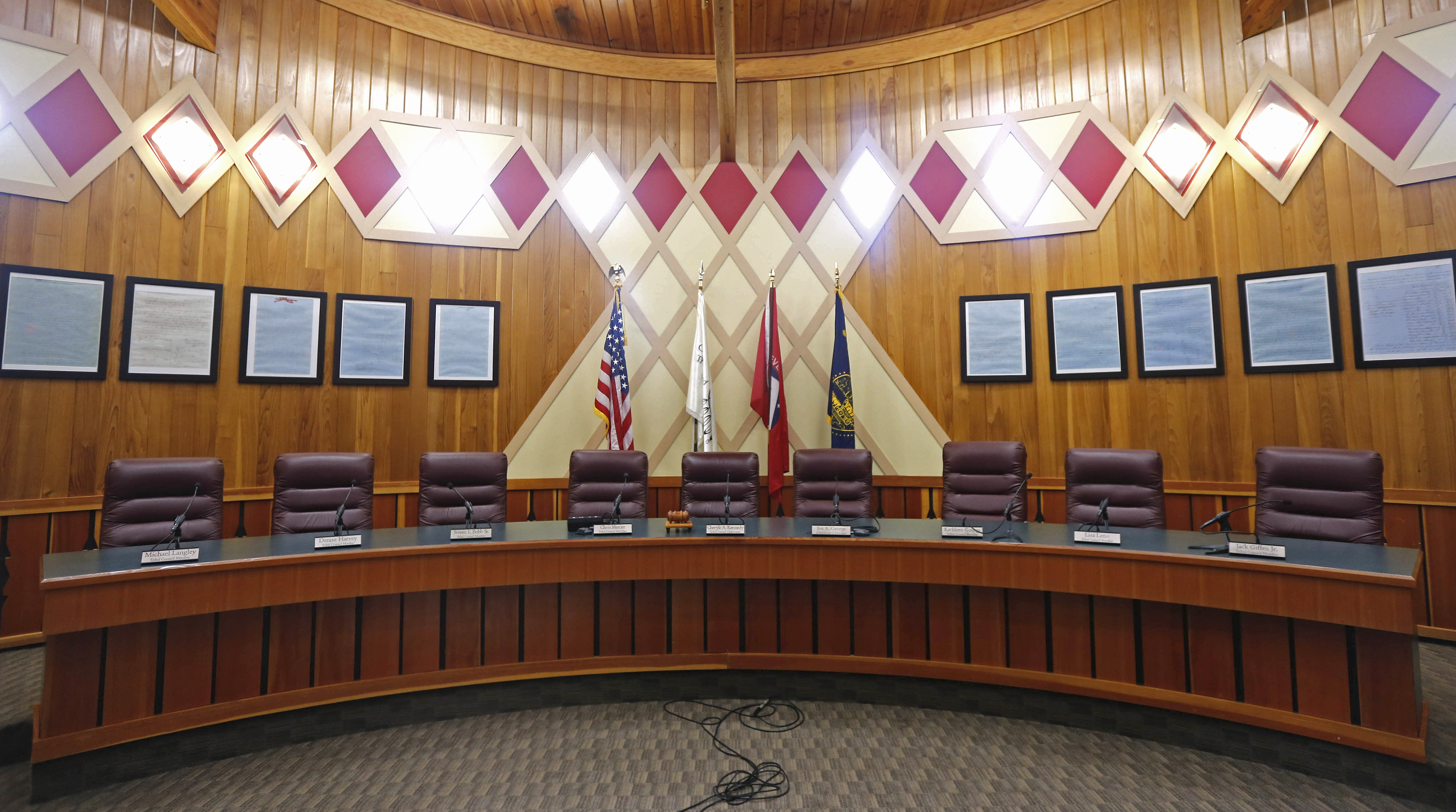Tribal Government & News
Tribe plans to pause all enrollments until April 2024

By Danielle Harrison
Smoke Signals assistant editor/staff writer
Tribal Council is planning to pause enrollment actions that contain a blood quantum component until April 28, 2024, affecting enrollment applications, blood quantum correction applications and Restoration Roll corrections – essentially anything that has to do with enrollment.
Tribal Council Chairwoman Cheryle A. Kennedy made the announcement during the Wednesday, March 22, Tribal Council meeting, stating that almost 70 percent of current living Tribal members have lower provable blood quantum than what is on file with the Tribe.
“Enrollment has been an ongoing issue since before we were terminated,” she said. “Eleven years ago, an audit was done that found errors in our files. There are still questions that are surfacing. … As of today, we have information that out of the 5,620 current living members of the Confederated Tribes of Grand Ronde, a minimum of 3,918 members have a supportable blood quantum that is lower than their recorded blood quantum. That’s a big number. As we continue to address the issues the number of impacted members will go up.”
Tribal Communications Director Sara Thompson said in a press release that the Tribe has been talking with the membership about ongoing issues with Tribal enrollment and blood quantum since 2019.
“We have continuously been working to resolve these issues” the release stated. “We now have additional information on the depth and magnitude of those issues. … We are not sharing this to scare you. We are sharing this information because the Tribe cannot ignore the current state of enrollment or continue down this same path. Doing so only compounds the existing problems and makes the situation worse.”
A 2012 enrollment audit conducted by New Mexico-based accounting firm Anuskewicz & McCabe that became the foundation for a divisive era of disenrollment proceedings within the Grand Ronde Tribe was ultimately deemed unreliable.
“(It) cannot be relied on to confirm whether an individual’s blood quantum in the Tribe’s system is actually correct,” stated a 2019 Tribal Council memorandum. “The scope of A&M’s work … did not include looking at how an error or change in the blood quantum of one individual affected his or her family.”
In October 2019, Tribal Council approved a maximum $50,000 contract with Arizona attorney Robert Lyttle (Cheyenne & Arapaho Tribes of Oklahoma) to research Tribal enrollment issues and conduct public meetings, resulting in a 20-page report that traced Grand Ronde membership and enrollment issues from 1936 to the present. It was mailed out to Tribal members and there were four public input meetings that followed.
The Grand Ronde Tribe has specific blood quantum requirements in its Constitution. Using blood quantum to determine enrollment dates back more than two centuries, when Indian agents would do census taking in Tribal communities and assign blood quantum amounts to families, with little to no scientific process.
Kennedy noted that this was part of the U.S. government’s overall effort, dating back to its first president, to eradicate Native American culture and take land.
“As far back as the first president, the policy of the United States government was to take Tribal lands,” she said. “A number of strategies were used. Blood quantum was one of these.”
In order to change the requirements of enrolling new Tribal members, the membership must approve a constitutional amendment. This requires at least 30 percent of all registered voters cast ballots and two-thirds of those voting must approve the amendment.
The only three constitutional amendments that have passed were the 1999 amendment, which tightened enrollment requirements, an increase in the relinquishment period that passed in 2008 and a 2022 amendment, which banned disenrollment except in cases of deliberate fraud or dual enrollment.
“We wish the answer to this issue was an easy one, but it’s not,” Kennedy said. “Any real solution will require a constitutional amendment. With a pause in place, the Tribe will be able to focus on the next steps. This decision was not made lightly, and we respect that Tribal members will need time to process this information and will want to ask questions.”
She encouraged Tribal members to contact the Tribal Enrollment Office to review their file and noted that a Tribal member cannot look at anyone else’s file except with explicit permission from that member.
There also will be a hybrid informational meeting at 5:30 p.m. Tuesday, April 4. More information will be shared when it is available.
“We are here for you,” Kennedy said. “This is a hard situation. It’s an awful feeling not to know where your child, grandchild or even you may stand. Please know that we are committed to doing what is best for the Tribe and our Tribal families. We will get through this together and come out stronger in the end.”
